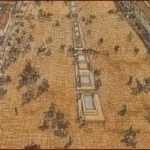
Witchcraft Today
Far from being a relic of the past, witchcraft today is a vibrant and growing spiritual path embraced by people all over the world.
Exploring past events, civilizations, and historical figures that shaped our world.

Far from being a relic of the past, witchcraft today is a vibrant and growing spiritual path embraced by people all over the world.

At the heart of a witch's practice is the casting of spells.

The period from the 15th to the 18th century saw a wave of mass hysteria and persecution that swept across Europe and colonial America: the great witchcraft trials.

A recurring figure in the folklore and trial records of the witch-hunts is the familiar, a supernatural spirit or demon believed to assist a witch in their magical practice.

Central to the mythology of the great European witch hunts was the concept of the Witches' Sabbat.

Alongside the Horned God, a powerful female deity is central to most witchcraft traditions: the Goddess of the Witches.

A central figure in many modern and historical witchcraft traditions is the Horned God.

In the ancient world, long before the hysteria of the European witch trials, the figure of the witch was a complex and often accepted part of society.

Defining what a witch is has been a complex and evolving task throughout history.

To truly appreciate Hellenistic literature, it helps to understand the physical object at its heart: the Hellenistic book roll.

The Hellenistic period was not just an age of literary innovation but also one of profound philosophical development.

One of the most characteristic genres of the Hellenistic period was didactic poetry: the art of turning a technical or scientific subject into a literary work.

The world of Hellenistic poetry was a competitive, scholarly environment where poets were deeply engaged with the literary past and with each other.

While the Hellenistic literary world was dominated by male authors, it was also an era that saw the notable emergence of several influential women poets.

In the intellectual crucible of Hellenistic Alexandria, the lines between creative writing and academic work began to blur.